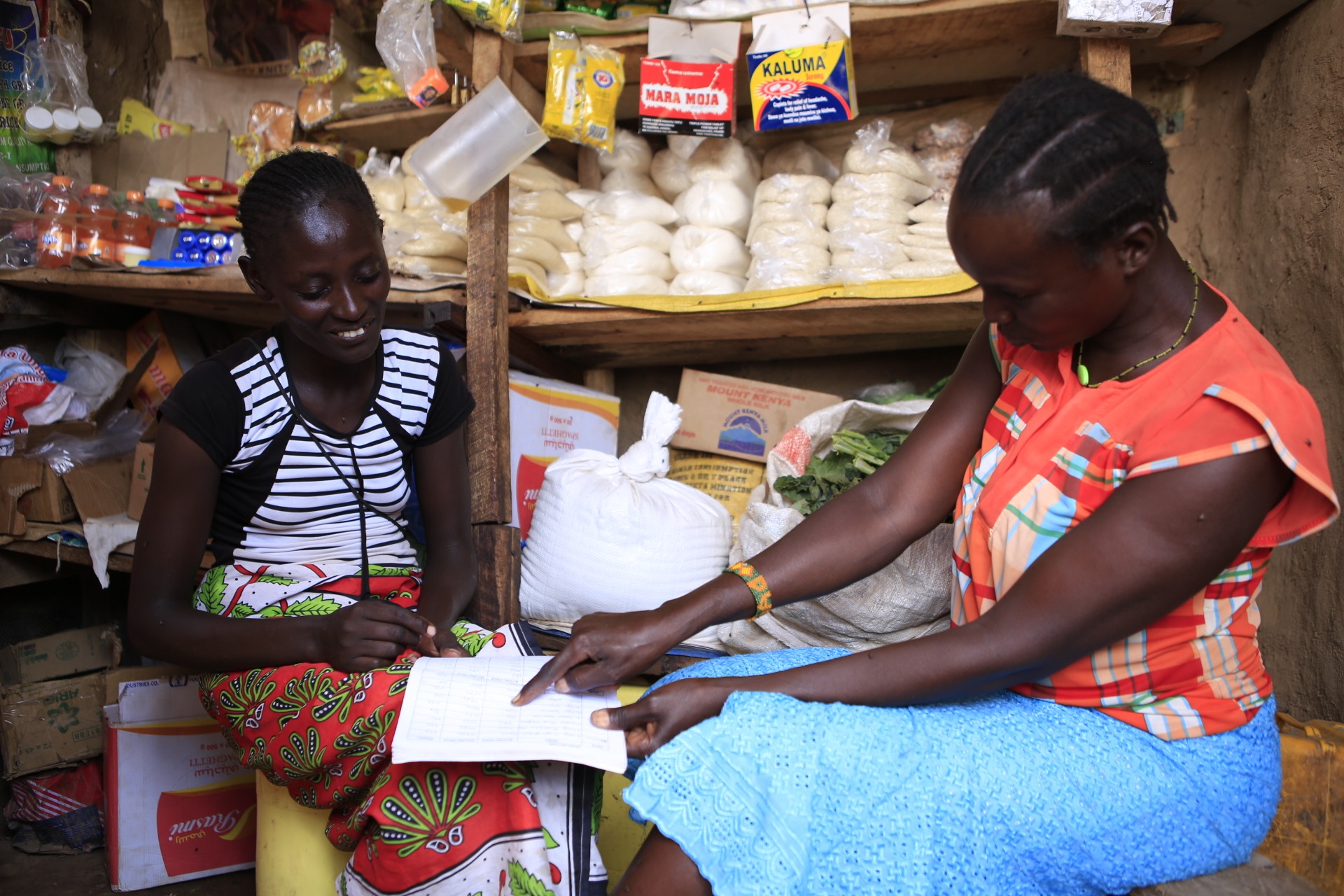
Paulina Adapal Paen never thought she could be a businesswoman. Raising five children on her own, she was struggling just to keep her family alive. Sending her children to school was impossible.
That changed in 2018 when Paulina joined a cohort led by The BOMA Project under the Feed the Future Kenya Livestock Market Systems Activity. The Activity, which is implemented by ACDI/VOCA in consortium with Mercy Corps, The BOMA Project, and Smart Regional Consultants, is part of the Feed the Future initiative funded by the United States Agency for International Development to address global hunger, food security, and agricultural livelihoods.
An assessment of the community and its members identified Paulina as one of the women most in need. She fell well under the ultra-poverty line of living on less than the equivalent of USD 1.90 a day. Paulina had been scraping out an existence for her family by selling charcoal. Charcoal meets the cooking needs of 80 percent of Kenya’s population, and making and selling it is often the only source of income for women like Paulina. However, excessive degradation of existing tree stock, coupled with the environmental impact of burning charcoal, makes it an unsustainable practice.
Paulina, who is chairwoman of Edot, her BOMA Business Group, and her two new business partners, Treasurer Susan Aregai Ekiru and Secretary Paulina Athinyo Akitoi, received a KES 20,000 (USD 193.14) cash transfer in October 2018, through the Activity. They used these funds to launch a kiosk business in their village of Ngaremara in Northern Kenya’s Isiolo County. They sell pasta, corn, beans, milk, tea, and small household items. Their village mentor, Rose Marti, helped them develop business skills, such as recording transactions, calculating profits or losses, managing credit, and marketing their kiosk to the community. They soon qualified for a progress grant of KES 10,000 (USD 96.57) at six months, which will enable them to expand.
The women also enrolled in Elimlimak, a registered savings group organized by The BOMA Project with 18 members. Collectively, the group helps its members cover unexpected expense to avoid further debt, like when the group contributed KES 3,000 (USD 28.97) toward Susan’s medical bills.
With the success of her business, Paulina was able to start a small garden, which provides fresh vegetables for her family. Her children are getting much better nutrition, and Paulina has noticed a difference in their overall health. “Now my children are well-fed,” she said. “And now I am also able to send them to school because of this business. I am going to work hard for this business so they can continue their schooling to the end.”
Paulina has seen changes in her village too. “My life is so different now,” she said. “I even know now that making charcoal hurts our trees and hurts our land. I tell other women that we do not need to do this charcoal business. I have stopped and they can too. It feels good that I am able to share my knowledge with others.”
Paulina’s role has changed dramatically, from struggling to feed her family to owning a small business and influencing others to consider their environmental impact. Going forward, she is looking for even more ways to diversify her income and improve the lives of her children and her community.
Learn more about the Feed the Future Kenya Livestock Market Systems Activity.
Learn more about our work in Kenya.
Photo credit: Urvia Kalra © The Boma Project, 2019







